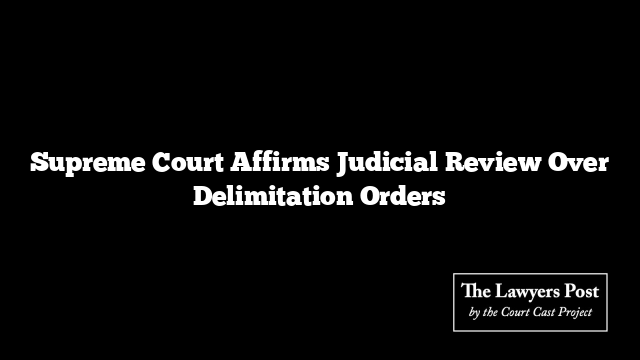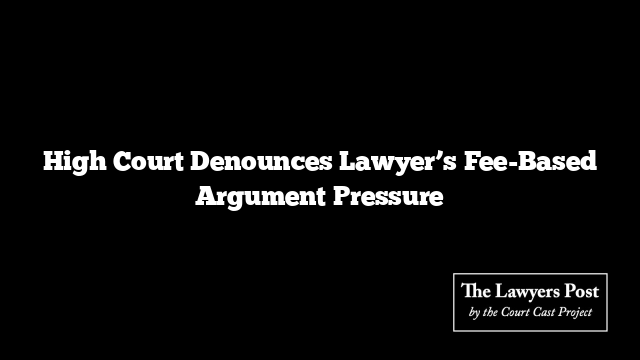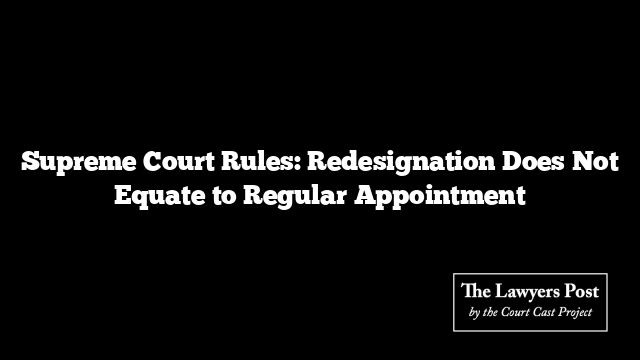The Supreme Court has confirmed that the constitutional courts retain the authority to review Delimitation Commission orders when they are deemed arbitrary and contradictory to constitutional values.
The court emphasized that while judicial review in delimitation matters is guided by established principles, courts are not barred from assessing the validity of such orders under the Constitution. Should an order be found manifestly arbitrary, the court can intervene to rectify the situation.
The decision arose from a petition before the Gujarat High Court challenging the reservation of Bardoli Legislative Assembly Constituency for the Scheduled Caste community by the Delimitation Commission under the Delimitation Act, 2002. The High Court dismissed the petition, citing Article 329(a) of the Constitution, which restricts judicial interference in electoral matters.
However, the Supreme Court bench, comprising Justices Surya Kant and Ujjal Bhuyan, rejected this view. They clarified that while Article 329 limits judicial scrutiny of laws related to delimitation, it does not entirely preclude judicial review of delimitation exercises. They referenced the Dravida Munnetra Kazhagam (DMK) v. State of Tamil Nadu case, where the court held that judicial intervention is permissible to facilitate elections or address arbitrary exercises of power.
The court also distinguished the Meghraj Kothari vs. Delimitation Commission case, noting that the restriction on judicial intervention was to avoid unnecessary election delays, not to impose a complete bar on judicial review.
Consequently, the Supreme Court set aside the Gujarat High Court’s observation, reaffirming the constitutional court’s power to review delimitation orders.





